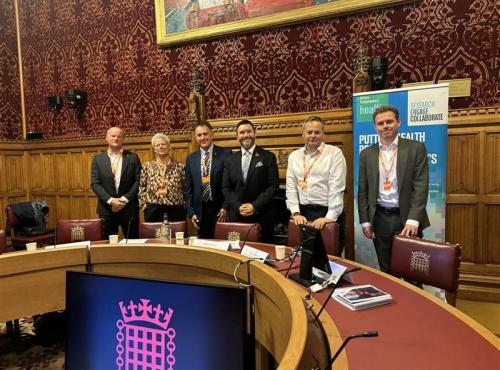Saving Us from Ourselves? The Creation of a Smoke Free Generation
The Tobacco and Vapes Bill marks a potentially historic shift in the UK’s approach to public health. Introduced in November 2024, the Bill proposes tighter regulation on the sale, advertising, and use of tobacco products.
Its most ambitious measure is a generational ban on smoking, prohibiting the sale of tobacco to anyone born on or after 1 January 2009. Under this progressive age-of-sale model, the legal age to buy tobacco will increase by one year every year. It is designed to phase out tobacco access entirely for future generations, disrupting what the Department of Health and Social Care calls a "cycle of addiction and disadvantage": effectively creating a smoke-free generation.
From Nudges to Bans: Evolution in Policy Approaches
The generational ban builds on two decades of increasingly interventionist tobacco control. Early strategies focused on education and individual responsibility, such as NHS stop-smoking services. But over time, policymakers have moved away from a focus on individual responsibility, and towards shaping the environment in which choices are made.
The smoke-free generation policy reflects this evolution in behavioural public policy. The government’s 2023 policy paper Stopping the Start states most smokers want to quit due to awareness of health risks, but are unable to due to long-term nicotine addictions:
“Over 80% of smokers started before they turned 20, many as children. They have had their choices taken away by addiction, and their lives will be harmed and cut short by an addiction they do not want.”
The underlying message is clear: the issue is not weak willpower, but a policy failure to prevent addiction before it starts. Consequently, much of the effort now focuses on removing the option to start smoking altogether. This same idea is evident in language used by former Health and Social Care Secretary Steve Barclay, who described the bill as a way to:
“...protect our children, grandchildren and the health service from the dangers of smoking long into the future.”
Such rhetoric reflects a growing policy consensus that the state should sometimes intervene to 'save' individuals from their own future selves. The Bill is being framed as a cornerstone of the government’s wider prevention-first health strategy.
The Smoke-Free Generation and the Khan Review
The idea of a smoke-free generation first entered the UK policy agenda through the Khan Review: Making Smoking Obsolete, published in June 2022. The review highlighted that smoking remains the leading cause of preventable illness and death in England, responsible for around 80,000 deaths each year.
Smoking also drives nearly half the gap in life expectancy between the richest and poorest communities. Another crucial point the policy rests on is that smoking has intergenerational effects; children of smokers are three times more likely to smoke themselves, perpetuating health inequality and reinforcing cycles of disadvantage.
Public Attitudes and Behavioural Legitimacy
Public support for the generational ban is strong. Recent polling of adults in England from Action on Smoking and Health (ASH) found that 68% supported the creation of a smoke-free generation, including 52% of current smokers.
This significant support reflects Britain’s changing social norms around smoking habits. Smoking is increasingly seen less as a matter of personal freedom and more as a public harm. Previous behavioural interventions, such as plain packaging, or point-of-sale display bans, were once controversial but are now widely accepted. Over time, it seems that policies that shape smoking behaviour have gained legitimacy as they embed themselves in public life.
Recent qualitative research funded by the National Institute for Health and Care Research (NIHR) provides further insight. Among young people from low socioeconomic backgrounds, many with direct experience of smoking or vaping, the policy was generally viewed positively; protective, rather than restrictive. While these findings are not generalisable, they suggest that the concept of a smoke-free generation may already be reshaping how young people think about smoking. This perception is arguably essential for long-term behavioural change.
Future Considerations
As the Tobacco and Vapes Bill progresses through Parliament, the government should continue to evaluate what factors are needed for success.
Though the heart of the Bill targets young people, attention should also be paid to less obvious questions:
- How will differing norms and perceptions across age groups affect implementation?
- Given the disproportionate impact of smoking on lower-income communities, how will the Bill address socioeconomic inequalities?
- Is a commitment to ‘strengthening enforcement activity’ limited to old-school regulation, or is there room for localised support that tackles stress, addiction, and access to healthier alternatives?
The generational smoking ban is, in many ways, a bold public health experiment. Whether it succeeds will depend not only on restricting supply, but also on how effectively it reshapes environments, expectations, and social norms; especially for those most at risk.




